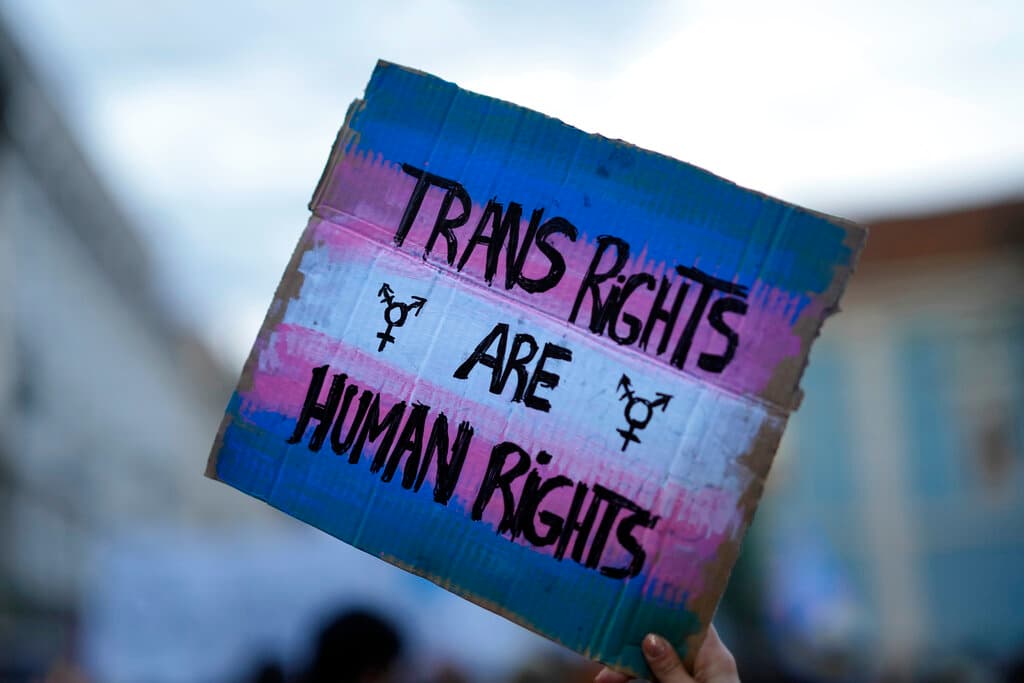Transgender Weightlifter Shatters Women’s Deadlifting Record, Trounces Competitors in Canadian Championship
If competitors claim to be female, regardless of their sex at birth, they can compete against women in Canada — no proof required.

The satirical animated television series “South Park” aired an episode in 2019 in which a trans-identified female athlete trounces every female competitor in a “Strong Woman Competition.” The episode’s humor derives from its absurdity: In a competition of brute strength, sex obviously matters.
Derided as “transphobic” at the time, the cartoon took parody to an extreme: The transgender athlete looked like a muscle-bound male wrestler — beard included — and had started self-identifying as a woman only “two weeks ago.” The message, though, was clear: that self-ID laws are ripe for abuse and that biology matters.
Now, life is imitating art, and critics of transgender participation in women’s sports are crying foul. The offending sport this time is weightlifting — about as close to a “Strong Woman Competition” as you can get.
On Sunday, a 40-year-old transgender powerlifter, Anne Andres, won first place and shattered the Canadian women’s deadlift record at the Western Canadian Powerlifting & Bench Press Championships. Ms. Andres, who was born male and transitioned 20 years ago, trounced her female competition by lifting a total weight more than 400 pounds heavier than that hoisted by her closest female competitor.
With a total score of 597.5 kilograms, Ms. Andres set a new Canadian women’s national record and an unofficial women’s world record. It wasn’t a close fight.
“I got every masters record and two unofficial world masters records,” Ms. Andres wrote on Instagram Monday. “I don’t care about records. I care about being there with my friends.”
“Preposterous,” a television host, Piers Morgan, posted to X, formerly known as Twitter, along with a video of Ms. Andres competing.
“Women applauding their own erasure,” a so-called British Trans-Exclusionary Radical Feminist activist, Kellie-Jay Keen, posted to X, noting how the female weightlifters on the podium clapped for Ms. Andres.
A Canadian female powerlifter, April Hutchinson, is also speaking out, telling TalkTV that many female lifters dropped out of the competition because of Ms. Andres’s inclusion. “The national record that [Ms. Andres] broke, athletes have been chasing that for years. We’re talking top athletes who have been training and training and training,” she said.
Ms. Hutchinson also criticized Canada’s liberal self-ID policy and called out Prime Minister Trudeau specifically. The Canadian Powerlifting Union’s transgender policy states that gender self-identification is the only crucial metric for inclusion in competition and that “disclosure of personal information beyond those required of cisgender athletes” is forbidden, “nor should there be any requirement for hormonal therapy or surgery.”
Basically, if you say you’re female, you can compete against women in Canada — no proof required.
“My boyfriend could basically walk in tomorrow, identify as a female, compete, and then the next day, you know, go back to being a man again,” Ms. Hutchinson said.
In March, a professional male lifter and veteran coach for Team Canada Powerlifting, Avi Silverberg — sporting a beard and classic men’s singlet — did just that, presumably to make a political point. Mr. Silverberg temporarily self-identified as a woman and entered a women’s competition in Canada, in which Ms. Andres held the record and casually bench-pressed enough to smash Ms. Andres’s then-record to smithereens.
Powerlifting is just the latest sport to face controversy and contend with how to accommodate transgender athletes. In July, the International Cycling Union banned transgender female athletes who’ve undergone male puberty from competing against women. The governing body for track and field, World Athletics, did the same in March.
The governing body for swimming, World Aquatics, also banned transgender females from competing against women and announced Wednesday that it will host its first “open category” for transgender athletes to compete separately in races at the sport’s World Cup event at Berlin in October.
A former NCAA All-American swimmer and Independent Women’s Voice advisor, Riley Gaines, who competed against a transgender NCAA champion, Lia Thomas, and is a leader in the “Protect Women’s Sports” movement, also weighed in on the powerlifting controversy. Ms. Gaines reposted a TikTok video Ms. Andres made “mocking” female powerlifters and added her own commentary.
In the video, Ms. Andres asks, “Why is women’s bench so bad? I mean, not compared to me — we all know I’m a tranny freak so that doesn’t count … I mean standard bench in powerlifting competition for women, I literally don’t understand why it’s so bad.”
“Let’s rephrase that: Women’s bench may be bad to you because you are a male who’s gone through male puberty with a male amount of testosterone,” Ms. Gaines says. “Andres’ record is a mediocre lift by a mediocre male powerlifter because the Canadian Powerlifting Union is discriminating against female athletes.”

